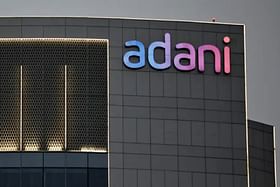Adani Power Ltd (APL), a part of the diversified Adani Group, on Sunday said that it has begun supplying electricity from its plant in Godda in Jharkhand to Bangladesh.
This comes in the backdrop of Adani Power commissioning the first 800 MW ultra-super-critical thermal power generation unit at Godda’s Motiya village, The plant has started with supplying 748 MW of power to Bangladesh, a company statement said.
Earlier in November 2017, the Bangladesh Power Development Board (BPDB) – the state-owned entity that purchases electricity on behalf of the government signed a long-term Power Purchase Agreement (PPA) with APL’s wholly-owned subsidiary Adani Power Jharkhand Ltd (APJL) to procure 1496 MW net capacity power from the 2×800 MW ultra-supercritical power project at Godda.
APL is expected to commission its second 800 MW unit soon, the company said.
The development assumes significance as the ports-to-power conglomerate is exploring options to reduce the impact of the damaging report by US-based short-seller Hindenburg, which caused a significant portion of its wealth to be obliterated earlier this year.
Godda Plant
It was during his visit to Bangladesh in 2015 that Indian Prime Minister Narendra Modi asked his Bangladeshi counterpart Sheikh Hasina to aid in the entry of Indian businesses into Bangladesh’s power generation, transmission, and distribution sector.
This was followed by two sides inking deals worth $4.5 billion for Indian government-run and private companies to sell electricity to Bangladesh.
This included a contract for Adani Power to build a $1.7 billion, 1,600-MW coal power plant in Godda in India’s eastern state of Jharkhand, which would supply power to Bangladesh.
Strategic Significance
“The Godda Power Plant is a strategic asset in India and Bangladesh’s long-standing relationship. It will ease the power situation in Bangladesh, making its industries and ecosystem more competitive,” said S B Khyalia, CEO, APL.
The electricity supplied from Godda will significantly improve the situation in the neighbouring country as it will replace expensive power generated from liquid fuel, bringing down the average cost of power purchased.
Bangladesh has one of the largest liquid fuel-based power generation plants in the Indian sub-continent region. The installed capacity of heavy fuel oil (HFO)-based plants is about 6,329 MW and high-speed diesel (HSD)-based plants is about 1,290 MW, totaling to over 7,600 MW.
Coal Issues
The Godda plant was to commence power supply this March. However, the BPDP had asked for relief from escalating imported coal prices, which delayed the commercial opening of the plant.
The coal-based power plant will source coal from the Carmichael mine in Australia, owned and operated by Adani Mining.
According to a Business-Standard report, BPDB in February had sought for “temporary relief” in the cost of coal supplied for the plant, given the current high thermal-seaborne coal prices.
Conflicting information given by the BPDB and Adani Power about the price of coal for the plant has only deepened the controversy.
Bangladeshi media reported, citing BPDB officials, that Adani Power asked $400 per metric tonne of coal for the Godda plant, a whopping 60 percent more than the average $250 Bangladesh usually pays for imported coal for its other power plants in Payra, Banskhali or Rampal.
However, Adani group said that the coal price chargeable by it would be $139 per metric tonne in March, the first month of its supplies.
Though at present, Bangladesh has long-term PPA ties with three other imported coal-based generators, the total tariff of Godda plant is competitive compared to peers, it stated.


